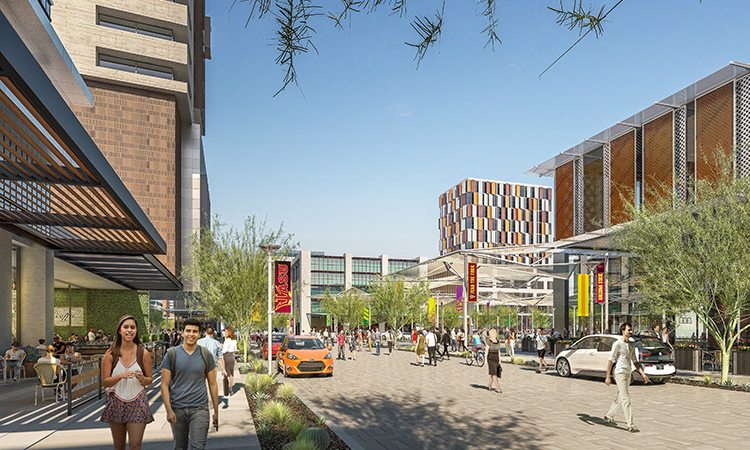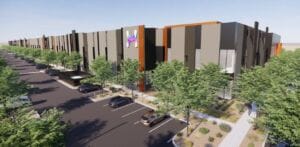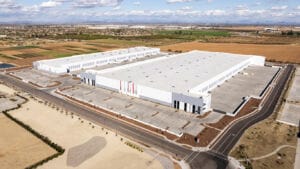Over the past two decades, Tempe experienced rapid growth, including that of Arizona State University, which now ranks as the largest public university in the nation in terms of students and No. 1 in the nation for innovation.
As ASU’s Tempe campus grew, so has commercial development activity throughout Tempe, transforming the once quaint, small, college-commuity of Downtown Tempe into a bustling live-work-play environment that continues to experience more commercial activity.
In fact, Tempe was recently recognized as the No. 1 market in the nation for office absorption and rising rent rates, according to CBRE’s annual Tech-30 report.
Tempe was the top submarket for net absorption growth from Q2 2015-Q2 2017, at 33.2 percent, followed by Seattle’s Lake Union (27.5 percent) and Salt Lake City’s South Valley (19.3 percent).
However, this isn’t slowing down interest from developers and site selectors who want to build in the area, says City of Tempe Economic Development Director Donna Kennedy.
She points to Tempe’s unique quality of life, live-work-play synergy and its vision to be an “innovation district” as a few reasons why Tempe continues to attract so much attention from companies and residents.
For example, Kennedy says, office occupancy in Downtown Tempe is currently at 98 percent and some companies vying for space are choosing to be placed on a waitlist instead of looking for space elsewhere.
In fact, Tempe has attracted 30,000 new jobs over the last five years and that’s expected to rise as more office development occurs to meet demand, including the next phase of the Novus Innovation Corridor.
It’s a bold new community created by ASU and master developer Catellus Development Corporation that encompasses 330-acres of which 130-acres will be available for new development.
When completed, Novus will integrate more than eight million square feet of private, mixed-use urban development with new and renovated technology-enhanced collegiate athletic venues, ultimately bringing approximately 20,000 new jobs and 5,000 new residents to Central Tempe.
Kennedy says, “The Novus Innovation Corridor provides us with an opportunity to have a sustainable economy where we build off of what’s existing as well as redevelopment opportunities.”
Phase I will consist of the first 1-million square feet of mid-rise, Class A office space, urban residences, hotel rooms, and a diverse collection of retail shops and restaurants in a compact, urban setting just north of the University Avenue Metro Rail station.
As one of ASU’s seven “Innovation Zones,” Novus Innovation Corridor will act as a living laboratory for technical advancements produced by the university in partnership with global leaders in a variety of technological and research fields.
“The Novus Innovation Corridor is an opportunity for ASU to harness and leverage its resources to create a place that integrates leading-edge technologies into an urban landscape,” said ASU President Michael M. Crow. “The innovation corridor will be a constantly evolving illustration of how local and global enterprises can partner to put innovative research and technology into practice in the greater community.”
Plans for the project’s next phase include three office buildings. Meanwhile, negotiations are progressing with a regional, urban multifamily developer on a 260-unit, mid-rise housing project, located north of University Drive and Rural Road, that will connect to the retail district with multiple ground-level opportunities.
Private development in Novus is expected to last over the next 20-year period.




